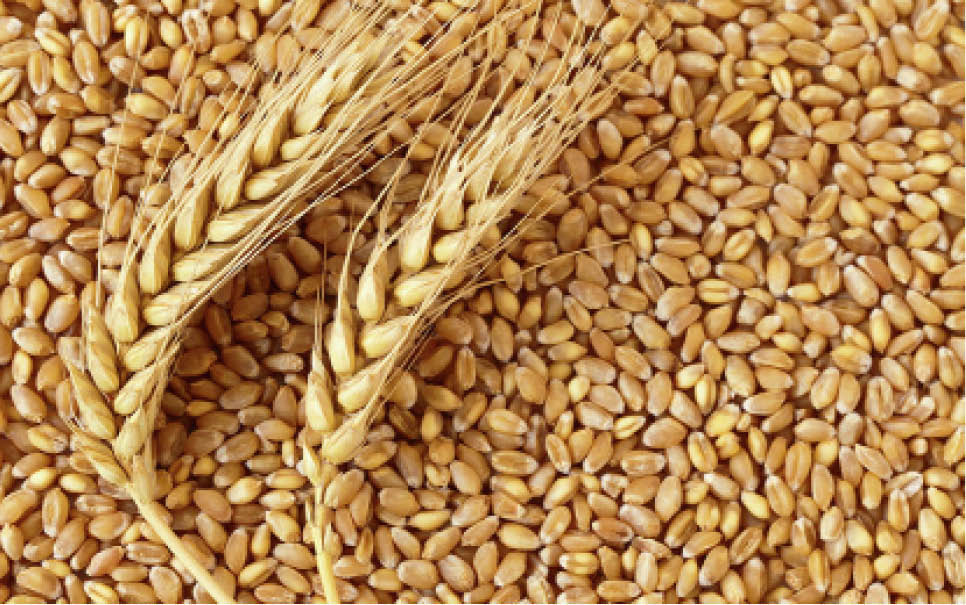Why wheat production is under constant threat- Farmers
…Say production may drop from 36,000mt to 248mt The Wheat Farmers Association of Nigeria has painted a devastating picture of how COVID-19 and uninspiring government policy were destroying wheat production in Nigeria. Alhaji Salim Mohammed, the national president of the Wheat Farmers Association in an extensive webinar conversation with Agriculture Journalists recently expressed anger […]

FILE PHOTO – Wheat seeds
- …Say production may drop from 36,000mt to 248mt
The Wheat Farmers Association of Nigeria has painted a devastating picture of how COVID-19 and uninspiring government policy were destroying wheat production in Nigeria.
Alhaji Salim Mohammed, the national president of the Wheat Farmers Association in an extensive webinar conversation with Agriculture Journalists recently expressed anger and dismay towards government’s attitude to wheat production and what it posits for the future.
“If it comes to the wheat sector, I am used to calling wheat a political crop in this country and I will continue to call it a political crop in the country in the sense that the commodity has been politicized. There is also high demand for wheat products in this country; there is high consumption of wheat in the country. Every household in the country consumes bread, noodles, and all these pastas micron, spaghetti etc.
“But what is my country doing to produce enough wheat for the consumption locally. That is a fundamental question. We, from the association know how much we are trying to drive the sector but up to now we have not seen the light of the day,” he said.
Speaking on the expected output of the crop which harvest was due during the period of total lockdown, he said even if there was going to be any production, it may not be more than 30% because the harvesting calendar was not followed judiciously.
“ COVID-19 is going to ravage between 30% to 35% of our expected production output. Our expected production was always on the basis of three tonnes per hectare.
“This season we have cultivated close to 12 000 hectares and if you multiply that by three tonnes per hectare, you have about 36,000 tonnes and If we can get 248 tonnes with the COVID-19, we are lucky,” he stated.
The farmers’ frustration
Alhaji Salim Saleh feels government is part of the problem: “If I can tell you in my understanding, maybe the government is only interested in promoting rice production in Nigeria as the only commodity they feel can feed the nation. But if you look at the rate of consumption per capital, we consume wheat more than we consume rice in this country. Sadly, there is no much attention on the subsector in the country and we have over 650,000 hectares where we can cultivate wheat in the dry season.’’
The weakness of Anchor Borrower Programme
The CBN Anchor Borrowers Programme (ABP) is a very laudable programme created by President Muhammadu Buhari, but the wheat farmers’ leader feels the string attached to the programme is a huge burden on the association and the farmers.
“Let me give you a typical example with the CBN ABP, you give a farmer loan and you ask him to repay the loan within a period of six months. Assuming I received a loan of N250,000, I put it into farming and I get a profit of N20,000 or N30,000 or a maximum of N40,000 out of that production circle, how do you expect me as a farmer, to pay back that loan within the shortest possible time I have.
“So if the CBN can sit down with the association and the financial institutions, we can redesign a concept and say okay, each association can take a loan of so and so amount for so and so number of farmer and the loan should be repaid after two or three years so that it can be revolving. Through that system, once a farmer concludes his farming and pays back the loan, you give him another one at the right time, definitely in two or three harvests, he will get what he is supposed to have as a farmer,” he said.
The missing link
The farmers believe that Nigeria is not prepared for agricultural development because there is no proper synergy between the operators of the agricultural sectors and the actors-the key stakeholders who are dealing with the farmers at the grassroots level.
“We the associations are the drivers of the commodity development in this country. We have the farmers in our fold, we work with the farmers and we can ask the farmers to go to farm directly. So there has to be good synergy between the operators at the centre and the farmers at the lower level so that we can have a round table meeting to understand what the major issues are and challenges facing agricultural production in the country,” Salim said.
